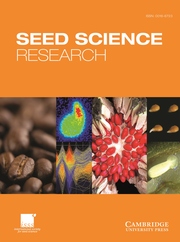The 14th International Symposium on Pre-Harvest Sprouting in Cereals (ISPHSC) was held in Chengdu, China, from 29 July to 2 August, 44 years after the first meeting held in Sweden in 1975. About 100 participants from Australia, China, Japan, the United Kingdom and the United States of America attended the symposium.
The 14th ISPHSC was supported by Sichuan Agricultural University and jointly supported by Sichuan Academy of Agricultural Science, State Key Laboratory of Crop Gene Exploration and Utilization in Southwest China, Yangtze University and Sichuan Society for Plant Pathology. This symposium was also supported by Roche Ltd, PhenoTrait Ltd, CapitalBio Technology, Beijing Kooland Technology Co. Ltd, HC Scientific Ltd and Chopin Technologies. Thanks to all the sponsors for their generous support for the 14th ISPHSC.
The members of the Local Organizing Committee (The Chair, Jirui Wang, Sichuan Agricultural University; Chunming Liu, Institute of Botany, CAS; Shubing Liu, Shandong Agricultural University; Wuyun Yang, Crop Research Institute; Xiangdong Fu, Institute of Genetics and Development Biology, CAS; Yongxiu Liu, Institute of Botany, CAS; Zhonghu He, Institute of Crop Science, CAAS; Wenying Zhang, Yangtze University) and International Organizing Committee (Chengdao Li, Murdoch University; Hiro Nonogaki, Oregon State University; Jean-Philippe Ral, CSIRO; Jirui Wang; Jose Barrero, CSIRO; Roberto Benech-Arnold, University of Buenos Aires; Shingo Nakamura, Institute of Crop Science) did a great job of organizing the symposium. The committee scheduled the programme, invited the keynote speakers, designed the flyer and symposium website, and organized each symposium section. Twelve volunteers from Sichuan Agricultural University made transportation, accommodations and meeting room well prepared. And they also prepared the meeting materials and sundries. As the chair of the 14th ISPHSC, I thank all the people who contributed to make the symposium a success.
In recent years, more and more wheat and barley planting areas have suffered from PHS because of both changes in environmental factors and the adjustment of agricultural cropping structure. Especially in 2016 and 2018, undesirable rain fell during the wheat harvest seasons in east Asia where PHS had not been previously reported. Because of this, the sprouted wheat yielded only 30–60% of the regular value. A similar problem occurred in Russia, Germany and North American, too. In the summer of 2020, many of the sorghum and maize production areas in the southwest of China suffered from PHS. PHS was also reported for some rice planting areas, which severely affected rice production and seed quality.
In this sense, research focusing on PHS is very important. The ISPHSC, dedicated to addressing PHS and related topics, is an excellent venue for researchers and breeders who study PHS to improve crop resistance. At the 14th ISPHSC, there were 4 keynote lectures, 27 oral presentations on 4 topics and a poster discussion session. Over the 3 d of the symposium, the whole spectre of the regulation of dormancy and germination, quality and end-use, germination and malting, and new germplasm materials and methods for PHS tolerance breeding were discussed.
After the symposium, the Editor-in-Chief of Seed Science Research granted the publication of a special issue for this 14th ISPHSC with Drs. Jirui Wang, Jose Barrero and Roberto Benech-Arnold as the guest-editors for the topic on pre-harvest sprouting in cereals. Four manuscripts were accepted after a rigorous review by experts in this area. These four manuscripts appear in this issue. We sincerely thank Dr. Henk WM Hilhorst, the Editor-in-Chief of Seed Science Research and the President of the International Seed Science Society, who helped us to complete this work.
Dr. Shingo Nakamura agreed to organize and host the 15th ISPHSC in Tsukuba, Japan, in 2022.

